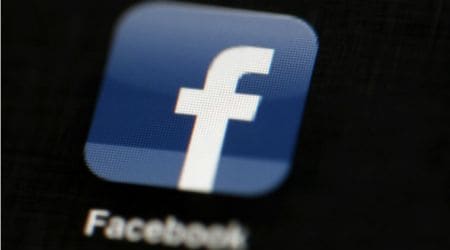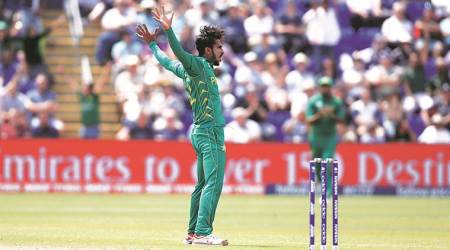 Nawaz Sharif was in the first row of the leaders gathered by the Saudi king, prominent and not really ignored, but his turn to speak didn’t come, although his speech-minders kept saying he was well-rehearsed to speak for Pakistan. (AP Photo/B.K. Bangash)
Nawaz Sharif was in the first row of the leaders gathered by the Saudi king, prominent and not really ignored, but his turn to speak didn’t come, although his speech-minders kept saying he was well-rehearsed to speak for Pakistan. (AP Photo/B.K. Bangash)
The opposition and media in Pakistan have been crucifying Prime Minister Nawaz Sharif for having sat through the US-Arab-Islamic Summit held in Saudi Arabia in the first week of June, without highlighting the grievances of the Pakistani people. Imran Khan of the main opposition party, Pakistan Tehreek-e-Insaf (PTI), hauled him over the coals — a daily ritual till Sharif cries uncle — for not telling President Trump what a creep he was, how America had, again, sucked up to Israel and let the Islamic world down and, above all, how much Pakistan didn’t want to join any American conspiracy against Iran, which was what the Summit in Riyadh was all about.
Nawaz Sharif was in the first row of the leaders gathered by the Saudi king, prominent and not really ignored, but his turn to speak didn’t come, although his speech-minders kept saying he was well-rehearsed to speak for Pakistan. Back home, everyone in the country of 200 million wanted him to speak and say something insulting to the king and President Trump. Even those who thought the Summit was a good opportunity for Sharif to put forward Pakistan’s position vis-a-vis India’s current policy of keeping the border hot forgot that Sharif’s foray into oratory wouldn’t have benefited Pakistan at all.
Pakistan has always been close to Saudi Arabia. PM Sharif and his family are especially beholden to the Saudi king for saving their lives after General Pervez Musharraf overthrew Sharif’s government in 1999, and then gifting his bankrupt government a billion dollars after his comeback in 2013. Saudi Arabia’s influence in Pakistan is exercised through funded madrasas and an army that continues to be a favoured security glacis for the kingdom’s internal and external defence. The world fears that the kingdom, if it ever chooses to go nuclear, will be piggybacked by Pakistan.
But the catch at Riyadh was that Pakistan didn’t want to badmouth Iran, against whom the Summit had actually been convened. Making a speech, Sharif couldn’t have chosen either in favour or against Iran, without hurting himself back home.
The opposition wanted him to make the speech and thus fall on his sword. Clueless TV anchors were “drunk with the wine of nation worship”, as they say in Urdu, and misunderstood the Summit. Had Sharif spoken to please the Saudis, he would have offended not only Iran, but also Qatar, which the Saudis proceeded to oust from the United Arab Emirates (UAE) as punishment for favouring Iran.
Sharif was in the unenviable position of being beholden in equal measure to Qatar, whose Prince Hamad will likely save Sharif’s life by bailing him out, through a letter, in a case of money-laundering being heard at the Supreme Court of Pakistan. Never had “low profile” in a conference favoured a participant as much as it did Sharif at the Riyadh Summit.
But there was sane analysis from Pakistan’s veterans of the Foreign Office. Writing in a publication of the Lahore-based Institute for Policy Reform, ex-Foreign Secretary and Ambassador Riaz Muhammad Khan stated: “Many Pakistanis feel let down by the manner in which Pakistan appeared to have been kept on the sidelines at the Riyadh Conference. Given the context of the Conference, our expectations should have been modest… Nawaz Sharif’s attendance was essentially a gesture to the Saudis. However, our eagerness for a meeting with Trump, even requesting Saudi intercession as reported by the media, was unwarranted.”
Ex-Ambassador Touqir Hussain opined: “I don’t have the facts on whether NS wanted to speak or not but I am glad he did not. Saudis would have never allowed it, knowing that he would end up saying something about Iran, and it would have queered the pitch… NS would have also said something about Pakistan’s fight against terrorism — not the theme of terrorism Saudis were trying to strike. Saudis were branding terrorism as an Iranian phenomenon, and posing themselves as leaders of counter-terrorism…”.
Ex-Ambassador Asif Ezdi wrote: “it was no tragedy that NS did not speak at the Summit, or that Trump did not name Pakistan as a victim of terrorism. In fact, I think NS should not even have asked to speak. His silence… would have sent a message to Iran of our neutrality… As for Trump’s failure to name Pakistan as a victim of terrorism, he did not even name Afghanistan… but spoke of innocent victims in Arab, Muslim and Middle Eastern nations collectively…”.

